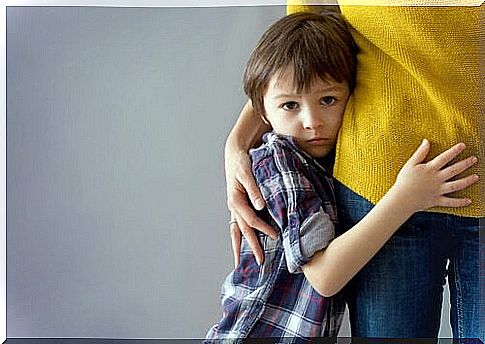Teaching Children To Overcome Their Fears

If your child is struggling to overcome their fears, there are some tips to help them face scary situations in everyday life.
Teaching children to overcome their fears is not an easy task. This is a natural phase that children go through, but is a complicated one.
You need to have lots of patience in addition to the tips you will find in this article.
As a parent, teaching children to overcome their fears can be frustrating. Fear can be irrational.
Often, nothing you say can help your child get over their anxiety. You may be blank with what to try next.
Children sometimes develop a fear of certain situations or objects that in our adult eyes do not seem threatening at all. This is happening across all cultures.
Childhood fears are a universal part of the process of growing up.
Teaching children to overcome their fears usually becomes necessary around the age of one. When the child is four to six years old, this tendency may become more apparent.
Most fears are just another phase in children’s development. In some exceptional cases, however, psychological help is needed.
The sources of this fear may change as your child gets older. For example, fear of the dark or the monsters under the bed can be transformed into a fear of strangers or violence.
Childhood fears: Factors to be aware of
It is important to keep in mind certain factors when teaching children to overcome their fears.
- Teasing children or forcing them to confront what they are afraid of can only make it worse.
- You can help your child by taking their fears seriously and encouraging them to talk about how they are feeling.
- Above all, never attack your child for fear or force them into situations they find scary.
- To help your child get over their fears, acknowledge their feelings.
- Encouraging your child to talk about the things that make them feel worried will allow them to face their fears at their own pace and with all your support.
What scares children?
Some children are more scared than others. Here are some of the factors that contribute to children’s fears:
- Genetic susceptibility : Some children are naturally more sensitive and have a more emotional temperament.
- Anxiety in parents : Children learn to behave by seeing their parents.
- Overprotective parents : Children who are heavily dependent on their parents may feel unable to do anything, leading to general anxiety.
- Stressed circumstances : Certain situations, such as Separation from parents, an injury, or a period of hospitalization can have a significant impact on your child.

5 activities for teaching children to overcome their fears
Here are 5 activities that will help your child overcome their fears. Try to put these tips into practice:
1. Read books on fear and overcome it
Telling stories, acting in situations, or reading a book about a scary situation can help the child overcome their fears.
This strategy is sometimes known as library therapy or expressive storytelling. This is useful because children can often identify with someone who is facing the same problem.
2. Use arts and crafts
Creative activity can allow children to resolve their subconscious fears. When a child is unable to talk about their fears, a blank page is a good tool for resolving what lies in their thoughts.
Once the child has drawn a picture of what scares them, you will be able to discuss their fears and seek a solution together.
3. Make a ranking
Have your child make a list of the things they are afraid of. H elp them then organize this list from the least to the most frightening.
You can also use the idea of a thermometer to help your child assess each fear from hot to cold.
Smaller children may need help doing this, but they will usually be able to tell you which situations they find more frightening than others.
Once your child has ranked each situation, use the idea to talk about fear on their list.

4. Play hide and seek
This popular childhood game can do more than just keep the kids entertained. It teaches us about abandonment and separation.
Playing hide and seek will help your child face their fear of being alone.
5. Admit when you are scared
Tell your child about the things that scare you and let them know what you are doing to get over your fears. Learning from your example will help your child overcome this difficult phase.
Your child mimics you and the emotions you experience and express. By sharing your own experiences, you teach your child to tell you how they feel.
There are many ways to teach children to overcome their fears. Which one you choose will depend on your child.
Most important of all, though, is that you are there for your child and support the child. Your little one needs you by their side to overcome their fears, which are a typical part of childhood.









